A backyard pool should be a haven of relaxation and fun. But for many pool owners, maintenance can be a daunting task that threatens to overshadow those sun-soaked days. Fear not! With the right knowledge and a bit of proactive care, you can swiftly troubleshoot the most common pool problems and keep your pool in tip-top shape.
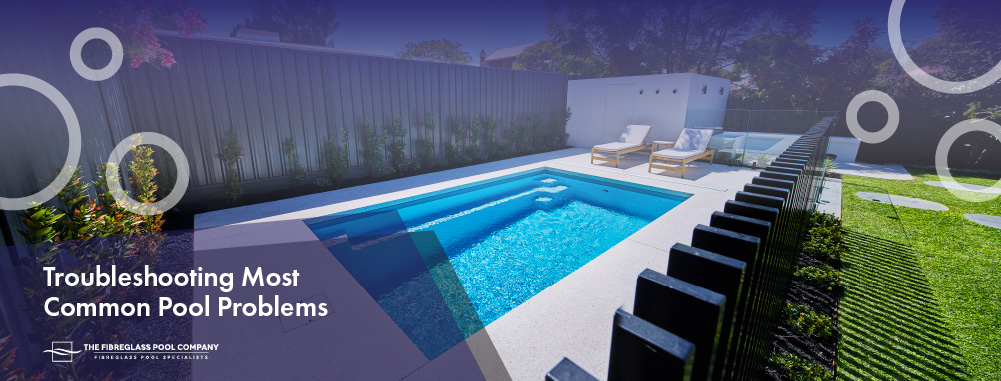
Understanding the Importance of Regular Pool Maintenance
Owning a pool comes with the responsibility of maintaining it to ensure it remains a safe and pleasant environment. Regular maintenance is crucial for preventing problems before they become major headaches. Without it, you may face issues such as murky water, imbalanced chemicals, and malfunctioning equipment. This guide aims to help pool owners identify and resolve these common problems, ensuring a clean and inviting pool all season long.
The Most Frequent Pool Problems: Water Clarity, Chemical Balance, and Equipment Malfunctions
Maintaining a pool involves understanding three core areas where problems are most likely to arise. These are water clarity, chemical balance, and equipment functionality. Each of these elements is interconnected, and an issue in one area can often lead to problems in another.
Water Clarity Issues
One of the most common complaints among pool owners is cloudy or green water. This issue can result from several factors, including poor filtration, inadequate chlorine levels, or the presence of algae. Clear water is essential not only for aesthetic reasons but also for ensuring a healthy swimming environment.
Chemical Imbalance
Maintaining the correct chemical balance in your pool is crucial. Imbalanced chemicals can cause skin irritation, reduce the effectiveness of sanitizers, and lead to the growth of harmful bacteria and algae. Key chemical levels to monitor include pH, chlorine, alkalinity, and calcium hardness.
Equipment Malfunctions
Pool equipment such as pumps, filters, and heaters play a vital role in maintaining a healthy pool environment. When these components malfunction, they can lead to a host of problems, including poor water circulation, ineffective filtration, and temperature inconsistencies.
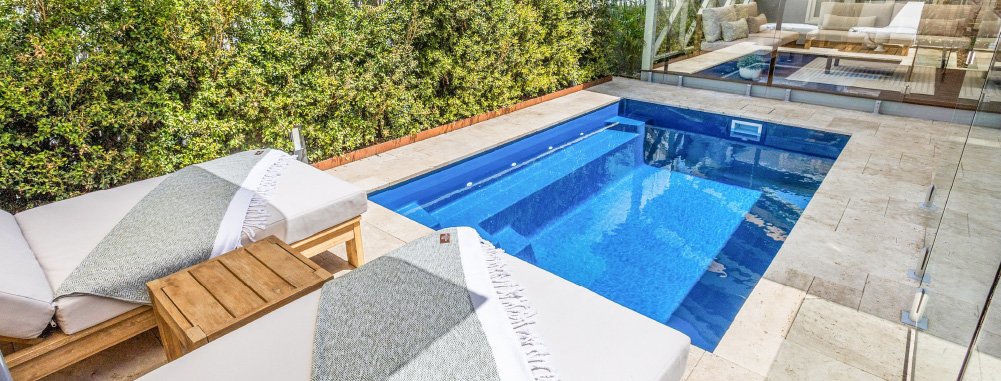
Troubleshooting Water Clarity Issues
Identifying the Cause of Cloudy Water
Cloudy water is often the result of poor filtration or inadequate sanitization. Start by checking your filter system. Ensure the filter is clean and functioning correctly. Backwash or replace the filter if necessary. Next, test your water’s chlorine levels. Low chlorine can allow algae and bacteria to thrive, leading to murky water.
Addressing Green Water
Green water is typically caused by algae growth. Begin by “shocking” your pool with a high dose of chlorine. This process will kill off the algae. Follow up by brushing the pool walls and floor to remove any remaining algae. Finally, run the filter continuously until the water clears.
Preventive Measures for Clear Water
To prevent water clarity issues, maintain consistent filtration and chlorination. Clean your skimmer and pump baskets regularly, and ensure your pool pump runs at least 8-12 hours a day during peak season. Additionally, monitor and adjust chemical levels weekly.
Balancing Pool Chemicals
Testing and Adjusting pH Levels
The pH level of your pool should be between 7.2 and 7.8. Test the water using a pool testing kit. If the pH is too high, add a pH reducer (muriatic acid or sodium bisulfate). If it’s too low, use a pH increaser (sodium carbonate). Maintaining the correct pH level ensures comfort for swimmers and the effectiveness of other chemicals.
Ensuring Proper Chlorine Levels
Chlorine is essential for sanitising your pool. The ideal chlorine level is between 1-3 ppm (parts per million). Use chlorine tablets, liquid chlorine, or a chlorinator to maintain these levels. Always test the chlorine level before swimming and adjust as needed.
Managing Alkalinity and Calcium Hardness
Total alkalinity helps stabilise your pH levels. Aim for an alkalinity level of 80-120 ppm. If it’s low, add baking soda; if it’s high, add muriatic acid. Calcium hardness should be between 200-400 ppm to prevent scale formation and corrosion. Raise calcium levels with calcium chloride or lower them by diluting your pool water with fresh water.
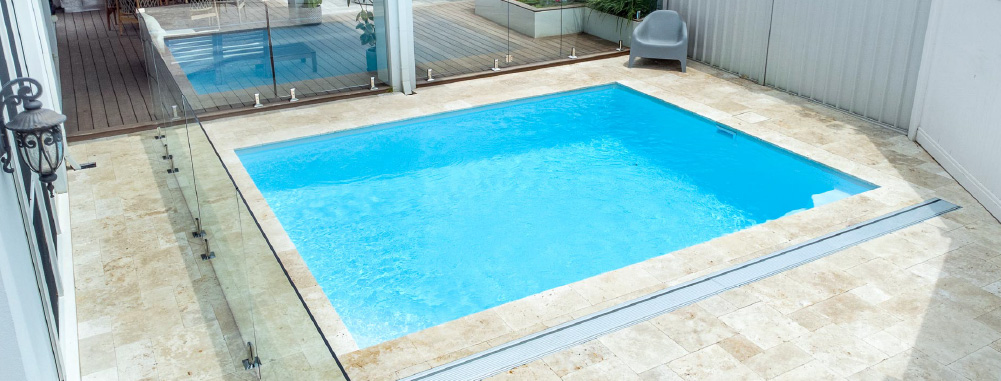
Troubleshooting Equipment Malfunctions
Diagnosing Pump and Filter Issues
If your pump isn’t working, check for power supply issues or blockages in the pump basket. For filter problems, ensure there are no clogs and clean or replace filters as needed. Proper water flow is critical for effective filtration and circulation.
Addressing Heater Problems
A malfunctioning heater can disrupt your pool’s temperature. Check for issues such as thermostat settings, clogged filters, or gas supply problems. If the heater fails to ignite, it may require professional servicing.
Ensuring Effective Water Circulation
Poor water circulation can lead to various problems, including algae growth and uneven chemical distribution. Ensure all return jets are angled downwards to promote circulation. Additionally, run your pump long enough each day to circulate all the water in your pool.
The Role of Professional Pool Servicing
When to Seek Professional Help
While many pool problems can be addressed with DIY solutions, some issues require professional expertise. If you’re dealing with persistent water clarity issues, severe chemical imbalances, or complex equipment malfunctions, it’s time to call in a professional.
Benefits of Professional Pool Maintenance
Professional pool servicing offers several benefits, including thorough cleaning, accurate chemical balancing, and expert equipment inspections. Regular professional maintenance can extend the life of your pool and equipment, saving you money in the long term.
Finding a Reliable Pool Service Provider
Look for reputable pool service providers with positive reviews and certifications. A good provider will offer customised maintenance plans, emergency services, and transparent pricing. Building a relationship with a reliable service provider ensures your pool stays in excellent condition year-round.
The Importance of Proactive Pool Care
Maintaining a clean and functional pool requires regular attention and care. By understanding common pool problems and their solutions, you can keep your pool inviting and safe. Remember to monitor and adjust chemical levels, maintain your equipment, and seek professional help when necessary.
Proactive pool care not only enhances your swimming experience but also protects your investment. Stay ahead of potential issues and enjoy your backyard oasis to the fullest. For further guidance and personalised tips, view more of our blog articles!
A backyard pool should be a haven of relaxation and fun. But for many pool owners, maintenance can be a daunting task that threatens to overshadow those sun-soaked days. Fear not! With the right knowledge and a bit of proactive care, you can swiftly troubleshoot the most common pool problems and keep your pool in tip-top shape.
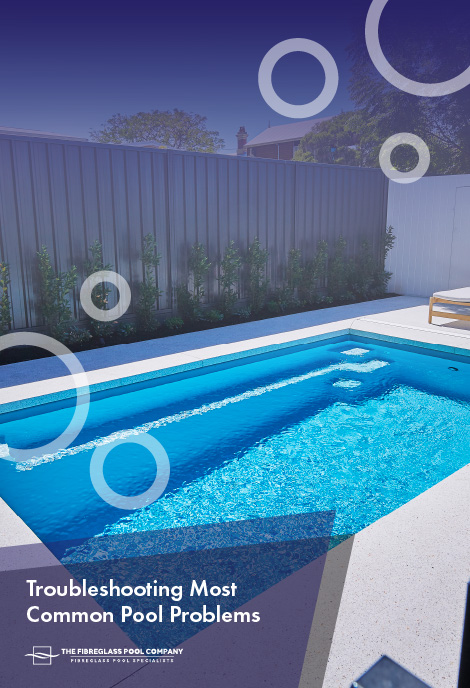
Understanding the Importance of Regular Pool Maintenance
Owning a pool comes with the responsibility of maintaining it to ensure it remains a safe and pleasant environment. Regular maintenance is crucial for preventing problems before they become major headaches. Without it, you may face issues such as murky water, imbalanced chemicals, and malfunctioning equipment. This guide aims to help pool owners identify and resolve these common problems, ensuring a clean and inviting pool all season long.
The Most Frequent Pool Problems: Water Clarity, Chemical Balance, and Equipment Malfunctions
Maintaining a pool involves understanding three core areas where problems are most likely to arise. These are water clarity, chemical balance, and equipment functionality. Each of these elements is interconnected, and an issue in one area can often lead to problems in another.
Water Clarity Issues
One of the most common complaints among pool owners is cloudy or green water. This issue can result from several factors, including poor filtration, inadequate chlorine levels, or the presence of algae. Clear water is essential not only for aesthetic reasons but also for ensuring a healthy swimming environment.
Chemical Imbalance
Maintaining the correct chemical balance in your pool is crucial. Imbalanced chemicals can cause skin irritation, reduce the effectiveness of sanitizers, and lead to the growth of harmful bacteria and algae. Key chemical levels to monitor include pH, chlorine, alkalinity, and calcium hardness.
Equipment Malfunctions
Pool equipment such as pumps, filters, and heaters play a vital role in maintaining a healthy pool environment. When these components malfunction, they can lead to a host of problems, including poor water circulation, ineffective filtration, and temperature inconsistencies.
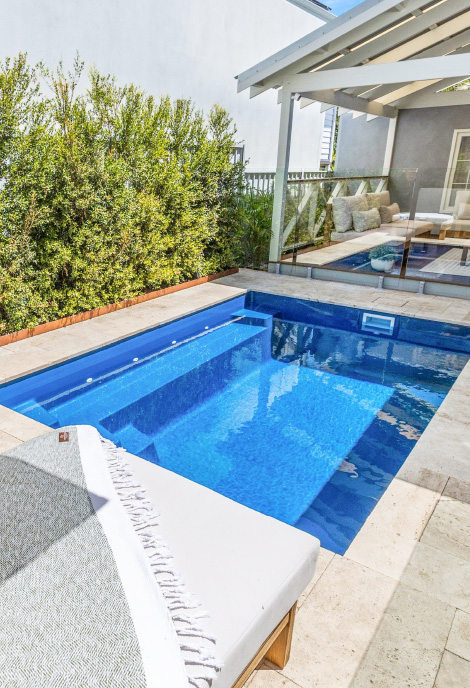
Troubleshooting Water Clarity Issues
Identifying the Cause of Cloudy Water
Cloudy water is often the result of poor filtration or inadequate sanitization. Start by checking your filter system. Ensure the filter is clean and functioning correctly. Backwash or replace the filter if necessary. Next, test your water’s chlorine levels. Low chlorine can allow algae and bacteria to thrive, leading to murky water.
Addressing Green Water
Green water is typically caused by algae growth. Begin by “shocking” your pool with a high dose of chlorine. This process will kill off the algae. Follow up by brushing the pool walls and floor to remove any remaining algae. Finally, run the filter continuously until the water clears.
Preventive Measures for Clear Water
To prevent water clarity issues, maintain consistent filtration and chlorination. Clean your skimmer and pump baskets regularly, and ensure your pool pump runs at least 8-12 hours a day during peak season. Additionally, monitor and adjust chemical levels weekly.
Balancing Pool Chemicals
Testing and Adjusting pH Levels
The pH level of your pool should be between 7.2 and 7.8. Test the water using a pool testing kit. If the pH is too high, add a pH reducer (muriatic acid or sodium bisulfate). If it’s too low, use a pH increaser (sodium carbonate). Maintaining the correct pH level ensures comfort for swimmers and the effectiveness of other chemicals.
Ensuring Proper Chlorine Levels
Chlorine is essential for sanitising your pool. The ideal chlorine level is between 1-3 ppm (parts per million). Use chlorine tablets, liquid chlorine, or a chlorinator to maintain these levels. Always test the chlorine level before swimming and adjust as needed.
Managing Alkalinity and Calcium Hardness
Total alkalinity helps stabilise your pH levels. Aim for an alkalinity level of 80-120 ppm. If it’s low, add baking soda; if it’s high, add muriatic acid. Calcium hardness should be between 200-400 ppm to prevent scale formation and corrosion. Raise calcium levels with calcium chloride or lower them by diluting your pool water with fresh water.
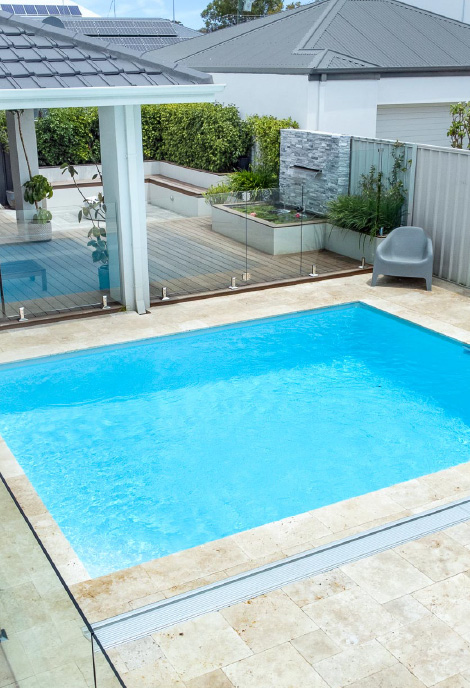
Troubleshooting Equipment Malfunctions
Diagnosing Pump and Filter Issues
If your pump isn’t working, check for power supply issues or blockages in the pump basket. For filter problems, ensure there are no clogs and clean or replace filters as needed. Proper water flow is critical for effective filtration and circulation.
Addressing Heater Problems
A malfunctioning heater can disrupt your pool’s temperature. Check for issues such as thermostat settings, clogged filters, or gas supply problems. If the heater fails to ignite, it may require professional servicing.
Ensuring Effective Water Circulation
Poor water circulation can lead to various problems, including algae growth and uneven chemical distribution. Ensure all return jets are angled downwards to promote circulation. Additionally, run your pump long enough each day to circulate all the water in your pool.
The Role of Professional Pool Servicing
When to Seek Professional Help
While many pool problems can be addressed with DIY solutions, some issues require professional expertise. If you’re dealing with persistent water clarity issues, severe chemical imbalances, or complex equipment malfunctions, it’s time to call in a professional.
Benefits of Professional Pool Maintenance
Professional pool servicing offers several benefits, including thorough cleaning, accurate chemical balancing, and expert equipment inspections. Regular professional maintenance can extend the life of your pool and equipment, saving you money in the long term.
Finding a Reliable Pool Service Provider
Look for reputable pool service providers with positive reviews and certifications. A good provider will offer customised maintenance plans, emergency services, and transparent pricing. Building a relationship with a reliable service provider ensures your pool stays in excellent condition year-round.
The Importance of Proactive Pool Care
Maintaining a clean and functional pool requires regular attention and care. By understanding common pool problems and their solutions, you can keep your pool inviting and safe. Remember to monitor and adjust chemical levels, maintain your equipment, and seek professional help when necessary.
Proactive pool care not only enhances your swimming experience but also protects your investment. Stay ahead of potential issues and enjoy your backyard oasis to the fullest. For further guidance and personalised tips, view more of our blog articles!


